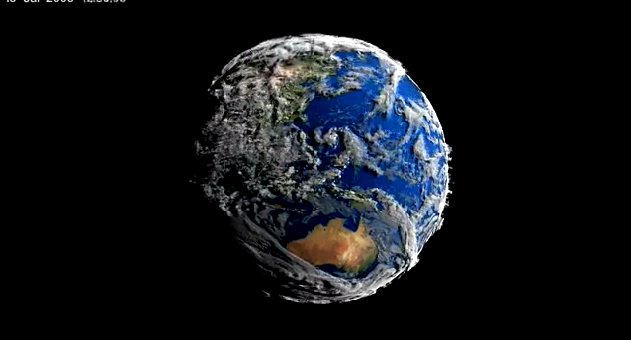

Over the course of billions of years, Earth changed from a barren landscape to a planet literally teeming with life. This phenomenal change happened when living things developed the ability to take light from the Sun and convert it to energy (aka photosynthesis). And over countless generations of growth and development, our incredibly lush and diverse planet acquired a wealth of energy.
And then humans arrived, and we began consuming and innovating and building and indeed, colonizing the entire planet. But our success has come at a price. According to a new study, we are rapidly releasing all of that stored energy.
“You can think of the Earth like a battery that has been charged very slowly over billions of years,” reported John Schramski, an associate professor in UGA’s College of Engineering and the study’s lead author. “The sun’s energy is stored in plants and fossil fuels, but humans are draining energy much faster than it can be replenished.”
The study, reported in the journal Proceedings of the National Academy of Sciences, was authored by researchers at the University of Georgia and the University of New Mexico. The mathematical analysis behind the study actually stems from a branch of physics. This discipline, called thermodynamics, involves the study of energy and its relationship to heat. In particular, the researchers focused on the planet’s biomass—the chemical energy stored in plants and fossil fuels—and how it has changed over time.
Indeed, the study states that in 2,000 years of remarkable human development, we’ve effectively destroyed about 1,000 billions tons of carbon in living biomass, mostly in the form of forests. That means we’ve cut the available biomass in half.
And the loss is accelerating. In the last century alone, we’ve eradicated about 10% of the biomass. While 550 billion tons of carbon in living biomass remains, on average, we are reaping it at a rate of approximately 1.5 billion tons of carbon per year. As we harvest the energy, we release it in the form of carbon dioxide and heat, which we lose to space.
In other words, in order to feed and house the approximately 7 billion humans on the planet, we’ve removed vast stretches of forest. Urban sprawl and large-scale agriculture are all around us, but the overall supply of biomass is disappearing. Pollution and unsustainable fisheries and forestry also contribute to the problem.
The numbers utilized for the study are just estimates and, as such, they are under constant scrutiny. However, the authors state that the magnitude of this loss and the overall trend are irrefutable facts. According to the paper, “the laws of thermodynamics are incontrovertible; they have inescapable ramifications for the future of the biosphere and humankind.”
“If we don’t reverse this trend, we’ll eventually reach a point where the biomass battery discharges to a level at which Earth can no longer sustain us,” Schramski said.
Nobody loves an alarmist, and Schramski said he didn’t want to be one. “I’ve gone through these numbers countless times looking for some kind of mitigating factor that suggests we’re wrong, but I haven’t found it.” Indeed, other experts have predicted similar consequences, but the public has yet to respond.
So, the question remains, will we start to make the difficult changes? Or will we leave the tough questions to the next generation?
What measures will be necessary to reverse the trend? Perhaps, the following list is a start:
- Birth control access for everyone! Many experts, including the InterAcadamey Partnership, a global network of scientists, have suggested that in order to improve the quality of life for us all, we need to achieve zero population growth within our lifetime.
- Restore damaged ecosystems! The Society for Ecological Restoration says they are working all over the world, to empower local people while restoring nature.
- Stop deforestation! Organizations like Greenpeace and the Nature Conservancy are working on this difficult task.
- Reduce our carbon footprint, consume less, live more wisely! Sites like Carbonfund.org and COTAP.org offer lots of suggestions for just how to do this.
WATCH: Can Earth Support the Estimated 9 Billion People in 2050?
